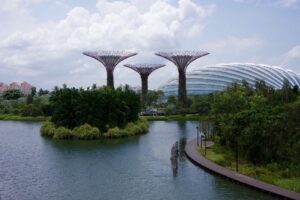Migrating to another country is a big life decision. Many people around the world migrate to another country for various reasons. Some of them are:
- Career opportunities & advancement
- Job transfer
- Life upgrade
- Experience new environments & foreign culture immersion
- Marriage
Whatever the reason, there are a number of factors to consider before making the move. Top countries that expats migrate to are Canada, USA, Australia, Hong Kong, Dubai, and Singapore. Here are some lifestyle factors that expats take into consideration when moving and living in Singapore.
Weather: Singapore’s humid climate and consistent weather throughout the year may not be everyone’s cup of tea, especially for those who are used to having the four seasons. However, this makes Singapore a rather easy location to plan activities in. Expats can enjoy their weekends on the beach when it is sunny or shop at the many shopping malls when it is pouring. Singapore is also geographically protected from natural disasters.
Infrastructure: Singapore is well-known for its world class infrastructure. Public transportation (train and bus) connects to every part of the island and is highly efficient with little occurrences of breakdowns. Wireless internet connections are reliable and affordable, with more and more digital platforms available for users such as ecommerce and cashless payment. Banking is easily accessible and highly efficient with a variety of services for both individuals and businesses.
Public Facilities: Smart urban planning allows people to live, play, and work within each suburb. Open air gyms, basketball courts, badminton courts, multipurpose halls, seating areas, and playgrounds are open to all for free or at minimal costs. Retail shops and malls can be found within walking distance from residential areas as well. Due to Singapore’s weather, sheltered walkways were constructed to protect people from the sun and rain from bustops to void decks of public housing flats.
Safety: Due to Singapore’s harsh legal consequences and swift legal system, crimes are low. Anyone can walk around at 4am and get back home safely. Petty crimes such as pickpocketing and stealing are not common, although they do happen. Robberies, murders, and general violence are rare and usually make national news.
However, due to Singapore’s move towards a digital economy, more and more scams are happening in the country. Predators are more sophisticated in their ruse and anyone can be a victim. The government is ramping up measures to educate the public about this issue and taking steps to protect its people. Banks have been working hard to spot and stop the incidences of scams happening.
Cleanliness: Singapore is known for being an impeccably clean city. The aim is to keep diseases at bay, which could cause a ripple effect within the society. Public places are mostly cleaned by foreign workers from Bangladesh, India, China, and Malaysia. Chewing gum is banned, fines are imposed on those who litter, and spot checks are done by officials to ensure that cleanliness is always maintained. Food and beverage outlets and factories are given official grades on their facility or store cleanliness and it is reviewed periodically.
Nature: Singapore is a green, garden city. There are many parks, nature trails, and gardens that people can enjoy. There is a Park Connector Network (PCN) all over the island where people can walk or cycle on from one park to another. A great way to get some exercise and explore nature in Singapore. Wild boars, otters, and monkeys are common sights in the tropical forests of Singapore.
Freedom: There are restrictions on freedom of speech and freedom of the press on the grounds of security. Singapore is a small country where multiracial and multireligious people live together. Harmony and peace are a high priority so as not to disturb the progress of the country.
However, because Singapore is a secular country, it is more liberal and tolerant of other types of personal freedom such as religion and culture.
Culture: Singapore is a multicultural city. Expats can find a mesh of Malay, Chinese, Indian, Eurasian, and Peranakan customs all in one place. Young Singaporeans are more westernised while still maintaining their ethnic roots. Singapore is the perfect mix of East meets West or as the locals say, rojak*!
(rojak is a food item of local Indian Muslim origins where a mix of different ingredients are mixed together with a sweet and spicy gravy; the word is also used to describe a mixture of some things in any other context apart from food)
Language: Singaporeans are bilingual in English and their own respective mother tongue. English is being used as a medium language everywhere – public signs, at work, and in school. Expats can easily assimilate into the society without the need to learn another language. However, Singaporeans speak their own version of English called Singlish. It is a mix of English, Malay, Mandarin, Chinese dialects, and Tamil languages. Expats do find it difficult to understand this spoken local language but they get used to it over time. They might even adopt it in their daily conversations!
Salary & Taxes: Singapore’s economic expansion creates jobs in some sectors and salaries offered are usually attractive. Top sectors that the government is focusing on at the moment are ICT, financial services, aerospace and aviation, and manufacturing and engineering. With low tax rates, expats can expect more disposable income when working and living in Singapore.
However, foreigners who want to work in Singapore need a valid Work Pass. Work Passes are tied to the job offered, its eligibility is dependent on the salaries offered, and there are various types of Work Passes available. Depending on the Work Pass type, individuals and/or companies may do the application. To apply for a Work Pass, contact Immigration@SG.
Conclusion
There are pros and cons in every country. Singapore is one of the popular choices for expats to migrate to. Many fell in love and decided to continue staying in the country largely due to its political, social, and economic stability.











